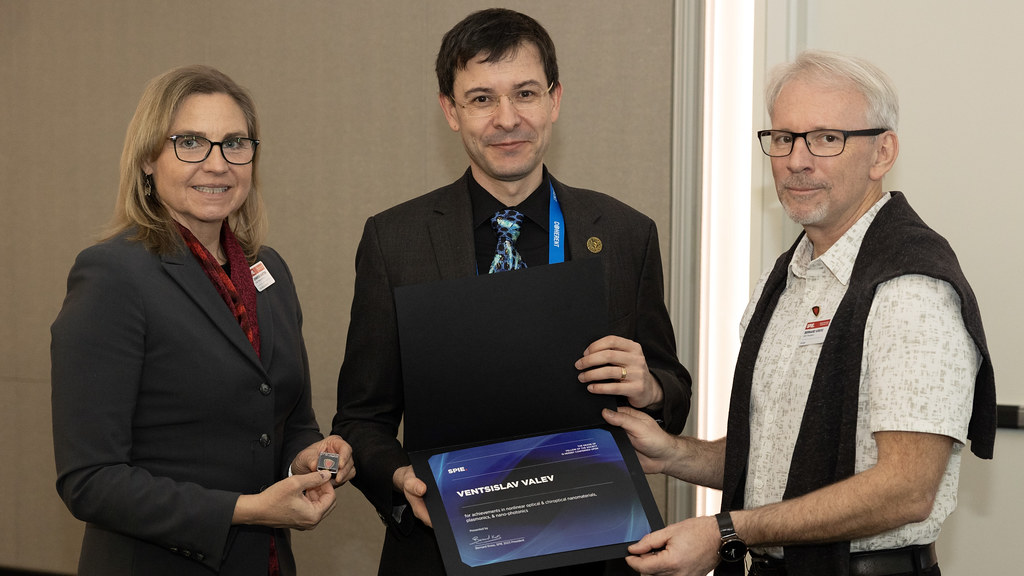Professor Ventsislav K. Valev, Head of the University's Department of Physics, has been elected Fellow of SPIE (the international society for optics and photonics), an award that distinguishes members of the Society who have made significant scientific and technical contributions in the multidisciplinary fields of optics, photonics, and imaging.
Established in 1955, SPIE is a professional organization, focussing on optics and photonics related technologies. The current number of SPIE members exceeds 20,000 professionals, worldwide.
Fellow Members are honoured for their technical achievement and for their service to the general optics community and to SPIE in particular. More than 1,700 SPIE members have become Fellows since the Society's inception.
Professor Sarah Hainsworth, Pro Vice-Chancellor (Research) at Bath said: “This Fellowship recognises the pioneering impact of Ventsi’s work that brings new insights into the interactions between powerful lasers and the structure of novel nanomaterials. "The research develops new understanding of the way in which these new materials can be exploited across a broad range of industries, from agri-food to pharmaceuticals.”
Professor Matthew Jones, Acting Dean of the Faculty of Science added: “This is a wonderful achievement for Ventsi, the department and the faculty. This is testimony to the excellent research that is being conducted here in Bath and I look forward to seeing more success in the years to come.”
Professor Valev works in the Department of Physics, where he serves as the Head of Department. He has been internationally acknowledged for his ground-breaking and original contributions to Nonlinear (nano)Photonics. The main focus of his research is on the interaction between powerful laser light and advanced optical materials.
His work has helped to understand the properties of chiral plasmonic nanomaterials that are currently considered for numerous technological applications, including chiral molecular sensing, separation and synthesis, super-resolution imaging, nanorobotics, novel pharmaceuticals and ultra-thin broadband optical components.
His work is presented in over 100 research papers, many appearing in top scientific journals. In 2021, he was elected Fellow of the Institute of Physics and, a year later, he was elected Fellow of Optica.
In 2022, his team was awarded the 2022 Horizon Prize from the Faraday Division of the Royal Society of Chemistry.
He has communicated his passion for physics to the general public through interviews (on television, radio and the press), articles, and over 65 visits to primary schools, for which he was awarded the Vice-Chancellor's Award for Public Engagement with Research in 2018.

